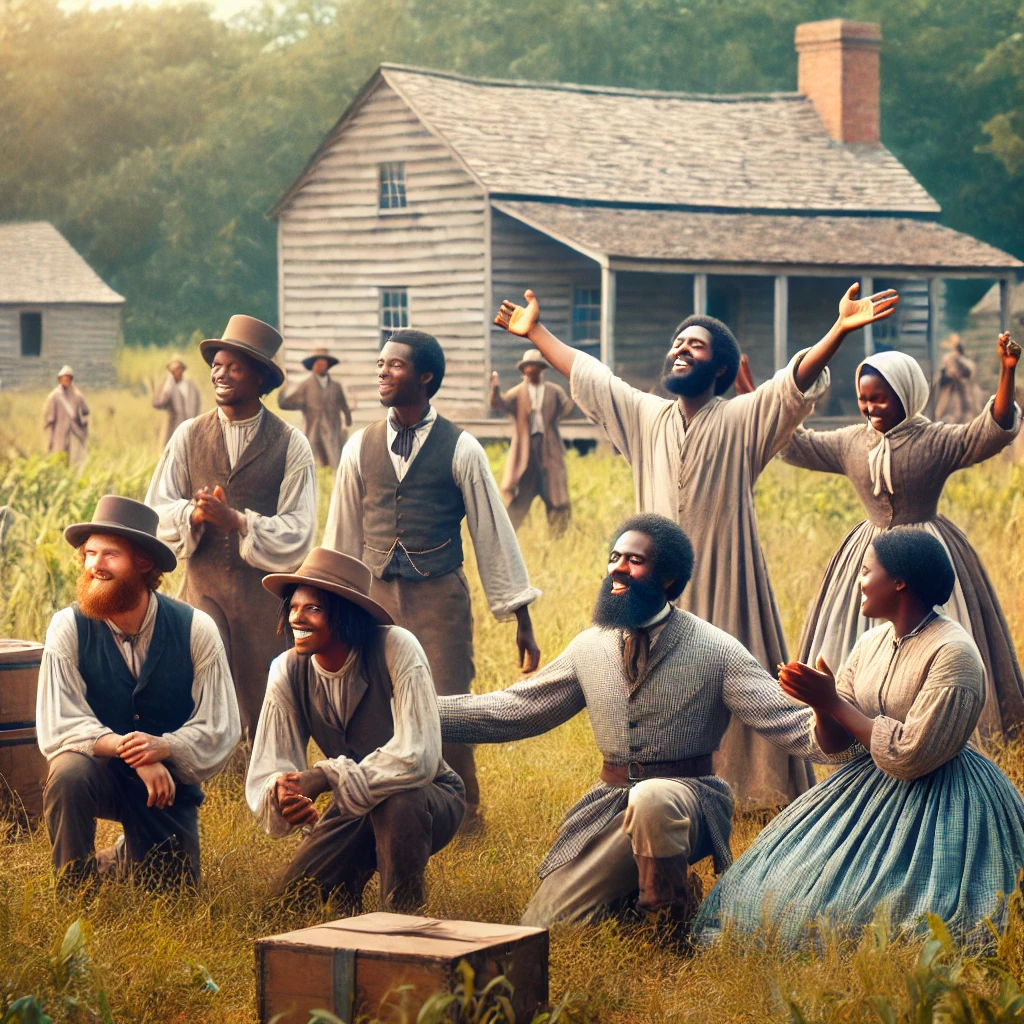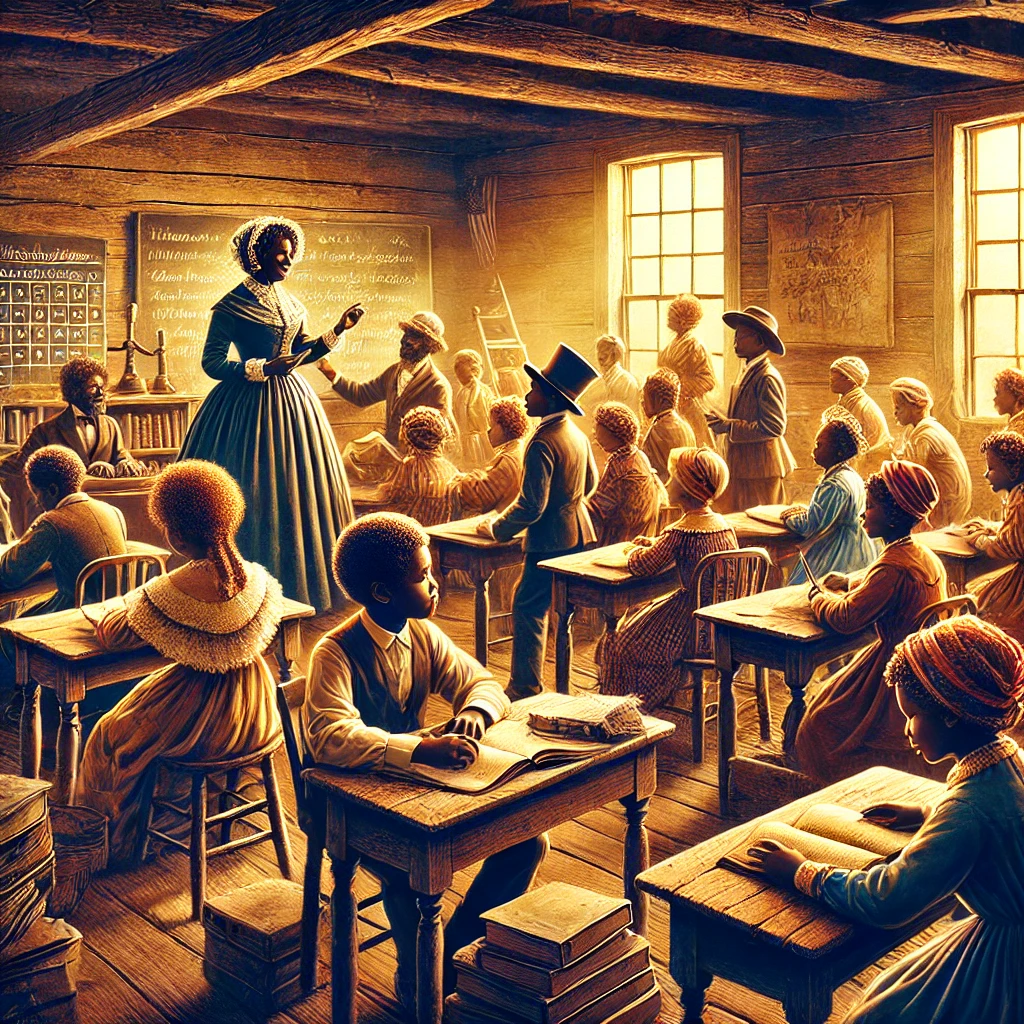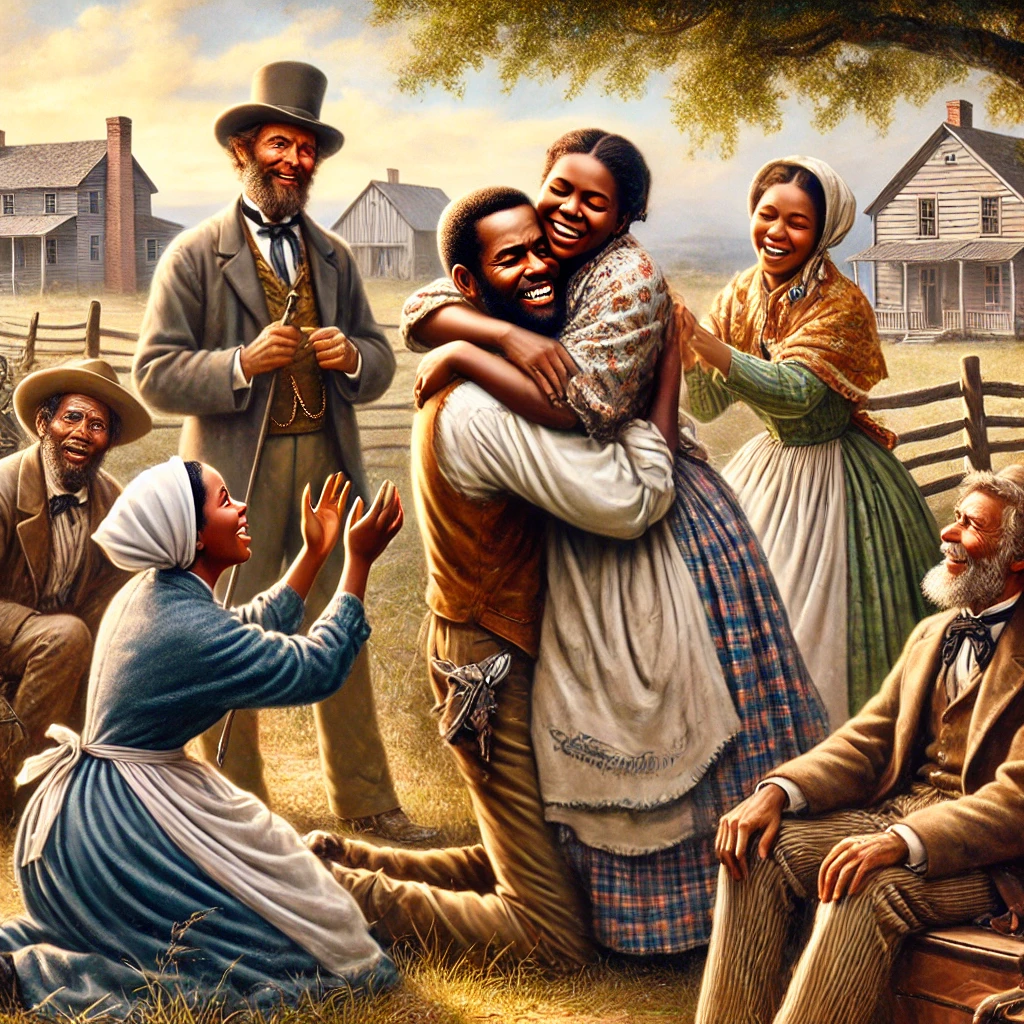A momentous day in American history, December 18th, 1865, marked the ratification of the 13th Amendment to the U.S. Constitution, abolishing slavery and affirming that “neither slavery nor involuntary servitude shall exist within the United States.” This landmark decision brought a formal end to centuries of enslavement, changing the course of the nation and setting the stage for further struggles for equality and justice.

The Road to Freedom: A Long and Grueling Struggle
The abolition of slavery in the United States was the result of decades of tireless advocacy and unyielding resistance. From the impassioned voices of abolitionists like Frederick Douglass and Harriet Beecher Stowe to the brave actions of those who operated the Underground Railroad, the movement to end slavery gained momentum throughout the 19th century. The Civil War, which began in 1861, became the ultimate battleground for the question of slavery—a conflict that would claim over 600,000 lives.
President Abraham Lincoln’s Emancipation Proclamation in 1863 was a crucial step, declaring freedom for slaves in Confederate states. However, it was not until the Union’s victory and the subsequent ratification of the 13th Amendment that slavery was abolished nationwide. The amendment’s passage represented a decisive victory for human rights and reflected a profound shift in the nation’s moral and legal compass.
The Immediate Impact: A Nation Transformed

The abolition of slavery was both a monumental achievement and a massive societal upheaval. For the nearly 4 million enslaved African Americans, the 13th Amendment symbolized freedom and the hope of a brighter future. Many seized the opportunity to reunite with family members who had been separated by the institution of slavery, while others began to establish schools, businesses, and communities to lay the groundwork for their newfound freedom.
However, the end of slavery did not immediately lead to equality. The Reconstruction era (1865-1877) brought efforts to integrate formerly enslaved individuals into American society, but it also faced fierce resistance from those who sought to maintain white supremacy. The rise of Black Codes, segregation laws, and violent organizations like the Ku Klux Klan underscored the challenges that lay ahead.
Lasting Legacy: The Fight for Civil Rights

The ratification of the 13th Amendment was a significant milestone, but it was far from the conclusion of the struggle for justice and equality. The abolition of slavery set the stage for future civil rights movements, including the fight for voting rights, desegregation, and broader social equity. Landmark achievements such as the Civil Rights Act of 1964 and the Voting Rights Act of 1965 built upon the foundation laid by the 13th Amendment.
Today, the legacy of the abolition of slavery continues to resonate in discussions about systemic racism, reparations, and economic disparities. While the 13th Amendment abolished the institution of slavery, its impact—both triumphant and challenging—remains a vital part of America’s ongoing journey toward a more just and equitable society.
As we reflect on December 18th, 1865, we remember not only the abolition of a cruel and inhumane practice but also the enduring spirit of resilience and the unyielding pursuit of freedom. This day serves as a reminder of the progress made and the work that still lies ahead in the quest for true equality.
